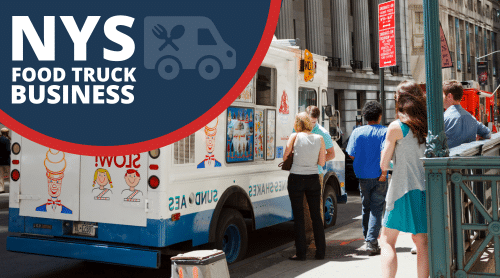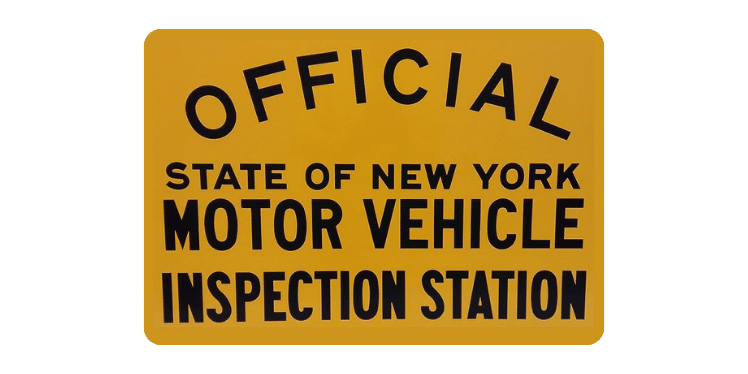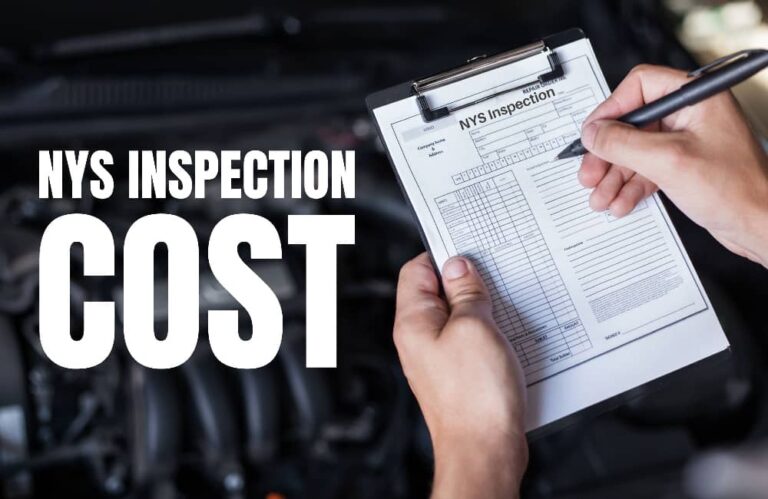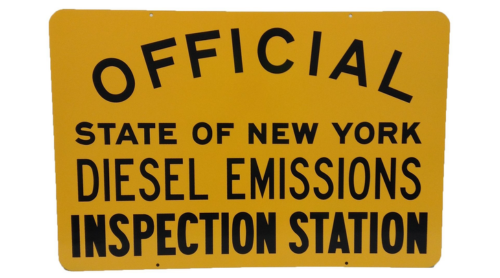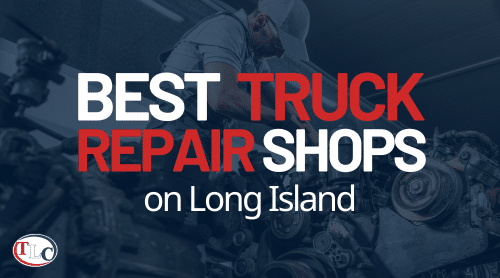Food Truck Business in NYC
If you’re considering this venture, it’s crucial to understand all the costs associated with it. Food trucks have been a popular and iconic feature in the bustling streets of New York City for decades. Whether it’s a hot dog cart, a gourmet food truck or a dessert van, these mobile eateries have always had a special place in the hearts of locals and tourists alike.
In recent years, the food truck business in NYC has been growing at an exponential rate, with a wide variety of new concepts and cuisines popping up all over the city. Starting a food truck business in NYC is an exciting and lucrative opportunity, but it requires careful planning and preparation to ensure success.
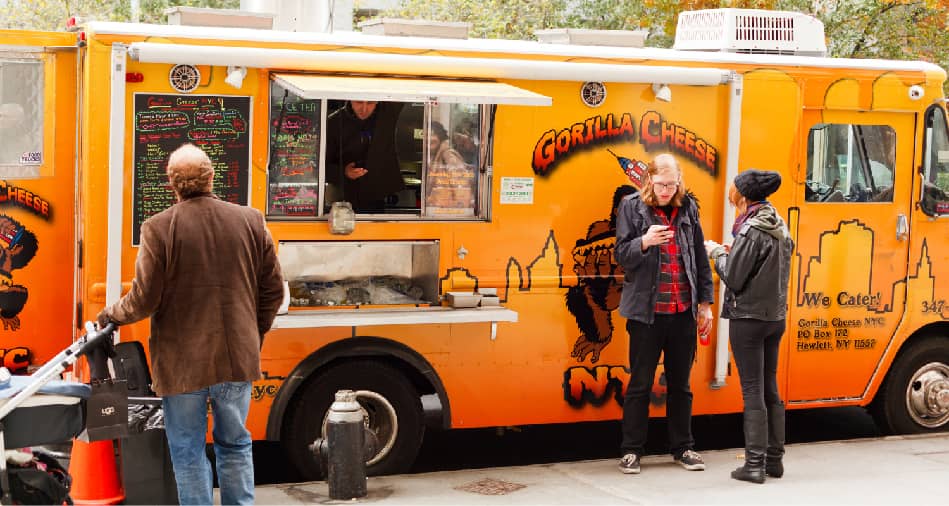
In this complete guide, we’ll walk you through the steps of starting and running a food truck business in NYC. We’ll cover everything from licensing and permits to finding a location, equipping your truck, hiring staff, marketing your business, financial planning, and the unique challenges and opportunities of the food truck industry in the Big Apple. Let’s get started!
NYC Food Truck Licenses and Permits
Before you can start selling food from your food truck in NYC, you’ll need to obtain several licenses and permits from various government agencies. The most important of these is the Restricted Area Permit, which is required by the New York City Department of Health and Mental Hygiene. This permit allows you to operate a food truck in specific restricted areas throughout the city. In order to qualify for a Restricted Area Permit, you’ll need to have a Mobile Food Vending License, which is issued by the NYC Department of Health and Mental Hygiene. This license is valid for two years and can be renewed online or in person.
Required Permits and Licenses
As you prepare to launch your food truck business in New York State, it is important to be aware of the permits and licenses required for operation. Firstly, you will need to apply for a Mobile Food Vending License from the NYC Department of Health and Mental Hygiene. This license costs $50 and is valid for two years. Additionally, if you plan on operating in restricted areas such as parks or certain streets, you will need to obtain a Restricted Area Mobile Food Vending Permit from the NYC Department of Transportation. The cost for this permit is $200 per month.
Regulations
It is also important to note that as a food vendor, you are required to follow specific regulations set by the New York City Health Department and the Department of Transportation. These regulations include food safety and preparation guidelines, as well as restrictions on parking and vending locations. By obtaining the necessary permits and licenses and adhering to these regulations, you can ensure the successful and legal operation of your food truck business.
Obtaining Permits and Licenses
To apply for a Mobile Food Vending License, you’ll need to meet several requirements, including passing a food protection course and having a valid driver’s license. Once you’ve obtained your license, you’ll also need to comply with a number of rules and regulations related to food safety and sanitation, such as using a commercial commissary kitchen for food prep and storage, displaying your license on your food truck, and keeping your food at safe temperatures.
In addition to the Restricted Area Permit and Mobile Food Vending License, you may also need to obtain other permits depending on your specific business needs and location. These might include a fire department permit, a parking permit, or a sidewalk café permit. You can find more information on these permits and the application process on the NYC Business website or by contacting your local city agency.
Overall, the cost of obtaining all the necessary licenses and permits for a food truck business in NYC can range from a few hundred to several thousand dollars, depending on the type and number of permits required.
Finding a Location
Finding the right location is crucial for any food truck business. The success of the business largely depends on how accessible the location is to potential customers and how convenient it is to operate from there. Street vending is the most common type of location for food trucks, but there are also opportunities to operate in parks and private events. It is important to research and obtain the necessary permits and licenses for each type of location.
Tips for Finding a Profitable Location
When searching for a location, consider factors such as foot traffic, parking availability, competition, and nearby businesses. A location that is close to other food trucks or restaurants may seem counterintuitive, but it can actually attract more customers. It is also important to consider the demographics of the area, such as age and income, to ensure that the menu and prices are appealing to potential customers. Finally, be willing to experiment with different locations and be open to feedback from customers to find the most profitable location for your food truck business.
Types of locations
The types of locations you may want to consider include parks, popular tourist attractions, farmer’s markets, college campuses, office parks, and music festivals. Research and understand your potential customer base in that particular location and prepare a menu that suits their tastes.
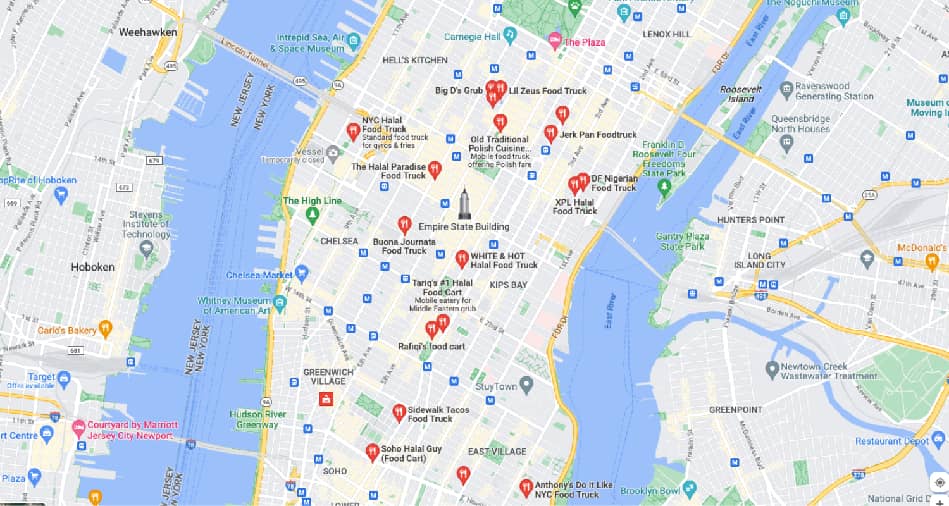
Equipment and Kitchen setup
When it comes to setting up a kitchen in your NYS food truck, there are a few key pieces of equipment you’ll need to consider. First and foremost, you’ll need a cooking appliance, such as a stove or grill, to prepare your food. Depending on your menu, you may also need specialized equipment, such as a deep fryer or pizza oven. It’s important to choose equipment that is durable, reliable, and efficient, as well as space-saving to fit within the limited space of a food truck.
What equipment is essential?
A crucial piece of equipment for any food truck is a refrigeration unit, such as a freezer or refrigerator. This is essential for storing perishable ingredients and keeping your food safe for consumption. Consider investing in high-quality refrigeration units with energy-efficient features to help save on operating costs.
Essential equipment for a food truck also includes a cooking range, fryer, grill, sinks, water tanks, generator, and ventilation system. All equipment must meet local health and safety regulations, and food trucks must also have fire extinguishers, first aid kits, and proper signage.
In addition to the in-truck equipment, you may also want to find a commercial kitchen to use as a commissary. This is a requirement in many areas and can provide additional benefits, such as a dedicated space for prep work and access to larger equipment like ovens or mixers.
Meeting Health Department Regulations
When starting a food truck business, it is crucial to comply with health department regulations. One of the key aspects is the equipment and kitchen setup. All equipment must meet specific safety standards, including proper ventilation, fire suppression systems, and electrical wiring. Food preparation areas should be separated from areas that handle waste and chemicals.
There must be a handwashing station with hot water, soap, and paper towels. The food truck must have a water source and waste disposal system. The layout should allow for easy cleaning and maintenance. Adherence to these regulations ensures that the food served is safe for customers, protecting their health and reputation.
NYS INSPECTIONS ON LONG ISLAND
Schedule your New York State Inspection with us Today!
Staffing
Starting a food truck business requires a minimal number of employees compared to traditional restaurants. Usually, the truck is operated by a team of two to four people, including a cook, a driver, and a cashier. The staff roles will depend on the type of cuisine you offer.
Staffing requirements
When hiring staff, ensure they have the necessary qualifications and skills required to operate a food truck. Train them on the basic rules of hygiene and sanitation, as well as customer service.
Additionally, hiring staff to work on your food truck may also come with legal requirements, such as obtaining workers’ compensation insurance. Ensuring compliance with government requirements can help prevent legal issues down the line.
Hiring and Compliance
Compliance with labor laws and regulations is also essential. Follow all the rules on minimum wage, maximum working hours, and provide any benefits your employees are entitled to. Create an employment contract to establish the expectations of your staff.
The details of the requirements can vary depending on your location, so it’s important to research and understand what is needed in your specific area.
In summary, you don’t need to hire many employees to operate a food truck. Train them, comply with the regulations, and create a safe work environment. Ensure that they understand your business objectives and brand. In a nutshell, take good care of your employees, and they will help take good care of your customers.
Marketing and Promotion
Marketing and promotion are essential for a successful food truck business. It helps to build brand recognition, attract new customers, and retain loyal ones. With the rise of social media and online platforms, marketing your food truck has become more accessible and affordable than ever before.
Effective marketing strategies include creating an appealing brand identity, using social media platforms to reach a broader audience, attending local events, collaborating with other businesses, and providing excellent customer service. Promoting your business through various channels is crucial for building your brand and increasing sales, making marketing and promotion an integral part of your overall business strategy.
Effective Marketing Strategies
- Social media is a powerful tool to promote your food truck and reach a broader audience. Utilize platforms like Instagram, Twitter, and Facebook to showcase your menu, daily specials, and upcoming events. Build a following by posting regularly, engaging with your followers, and using relevant hashtags.
- Email marketing is another effective strategy to keep your customers engaged. Create a mailing list and send out regular newsletters with information about your truck, special deals, and events.
- Partnering with local businesses is an excellent way to expand your customer base. Reach out to local events, markets, and festivals, and set up shop. Partnering with complementary businesses, such as breweries or wineries, can also be beneficial.

Source: https://www.instagram.com/greenstreetfoodtruck/
Building a Strong Brand
To create a strong brand, focus on developing a unique and recognizable image. This includes a memorable logo, consistent branding across all marketing channels, and a clear mission and message. Offer high-quality food, excellent customer service, and a memorable experience to set your food truck apart from the competition.
Financial Planning
Cost Analysis
To properly plan and budget for your food truck business, it’s important to understand all of the associated costs. These include equipment, permits, staffing, and even the cost of using a commissary or commercial kitchen, which can run from $400 to $1,500 per month.
To get a better idea of how much it will cost to start your business, use the Food Truck Empire spreadsheet, which you can customize to your specific situation. Be sure to also research local laws and regulations related to permits and licenses. For example, if you plan to operate a food truck in New York City, you could be required to pay an annual fee of nearly $290,000 to operate in certain restricted areas.
Business Plan
Once you have a better understanding of your costs, it’s time to create a business plan and budget that includes revenue and expense projections. This will help you determine whether your business can be profitable and what steps you need to take to ensure success.
To manage your finances and ensure profitability, it’s important to keep track of your expenses and revenue on a regular basis. Consider investing in accounting software or hiring an accountant to help you stay organized and make informed financial decisions.
Starting a food truck business can be a great way to pursue your passion for food and entrepreneurship, but it’s important to understand the costs involved and properly plan for success.
Challenges and Opportunities in the Food Truck Industry
Challenges
The food truck industry has been booming in recent years, offering a unique and mobile dining experience to consumers. In New York City, where competition is fierce, food trucks have to stay ahead of the curve to survive and thrive.
However, the industry is facing challenges, including changing regulations and the difficulty of securing prime locations to operate. The high cost of permits, as evidenced by the exorbitant fee of $289,500 to operate near the zoo in NYC, can be a major barrier to entry for new businesses.
Opportunities
Despite these challenges, there are opportunities for growth in the food truck industry. One option is to focus on niche cuisines or specific dietary needs, such as gluten-free or vegan options. By differentiating themselves from the competition, food truck businesses can attract a loyal following and increase revenue.
Additionally, technology can be leveraged to streamline operations and reach more customers. Utilizing social media platforms for marketing and online ordering can help food trucks expand their reach beyond just the immediate vicinity of their location.
To stay ahead of the curve, food truck businesses should also stay abreast of changing regulations and industry trends. Adapting to new regulations and experimenting with innovative menu items can keep customers coming back and help food truck businesses thrive in the competitive NYC market.

Frequently Asked Questions
What are the most important permits and licenses required to start a food truck business in NYC?
Starting a food truck business in New York City requires several permits and licenses. First, you will need a Mobile Food Vending License, which costs $200 for two years. You will also need a Restricted Area Permit if you plan to operate in certain designated areas, such as the Financial District. Additionally, you will need a Food Service Establishment Permit, which is obtained through the New York City Health Department and requires an inspection of your food truck. It’s important to note that the regulations and fees can vary by location, so it’s essential to research and understand all of the necessary permits and licenses for your specific area.
How can I find a good location for my food truck business?
Finding the right location is key to the success of a food truck business. Consider popular spots with high foot traffic, such as downtown areas, tourist destinations, and office districts. You may also want to explore local events, such as festivals or markets, to increase visibility. Additionally, networking with other food truck owners or attending food truck events can help you discover new locations and gain exposure.
What are some effective marketing strategies for a food truck business?
Social media can be a powerful tool for promoting your food truck business. Establish a strong presence on platforms such as Instagram and Facebook, posting mouth-watering photos of your dishes and updates on your location. Offering loyalty programs or partnering with local businesses can also increase customer engagement. Lastly, consider utilizing review websites, such as Yelp, to build credibility and attract new customers.
What are some of the biggest challenges facing food truck businesses in NYC, and how can they be overcome?
One of the biggest challenges facing food truck businesses in NYC is competition. With so many food trucks vying for customers, it can be challenging to stand out. Building a strong brand, offering unique dishes, and providing excellent customer service can help you differentiate from the competition. Another significant challenge is navigating the complex regulations and permits required to operate in NYC. Staying up-to-date on regulations and partnering with professionals, such as lawyers or consultants, can help you navigate the process and avoid costly mistakes.
Summary
Starting a food truck business in NYC may seem like an inexpensive way to become an entrepreneur, but startup and ongoing costs can add up quickly. Permit costs can range from a few hundred dollars to hundreds of thousands of dollars, depending on location and the type of business. Additionally, regulations may require the use of a commissary or commercial kitchen, which can cost between $400 and $1,500 per month.
However, with proper planning and budgeting, starting a food truck business in NYC can still be a viable and exciting venture for aspiring entrepreneurs. Don’t let costs discourage you from pursuing your dreams!

